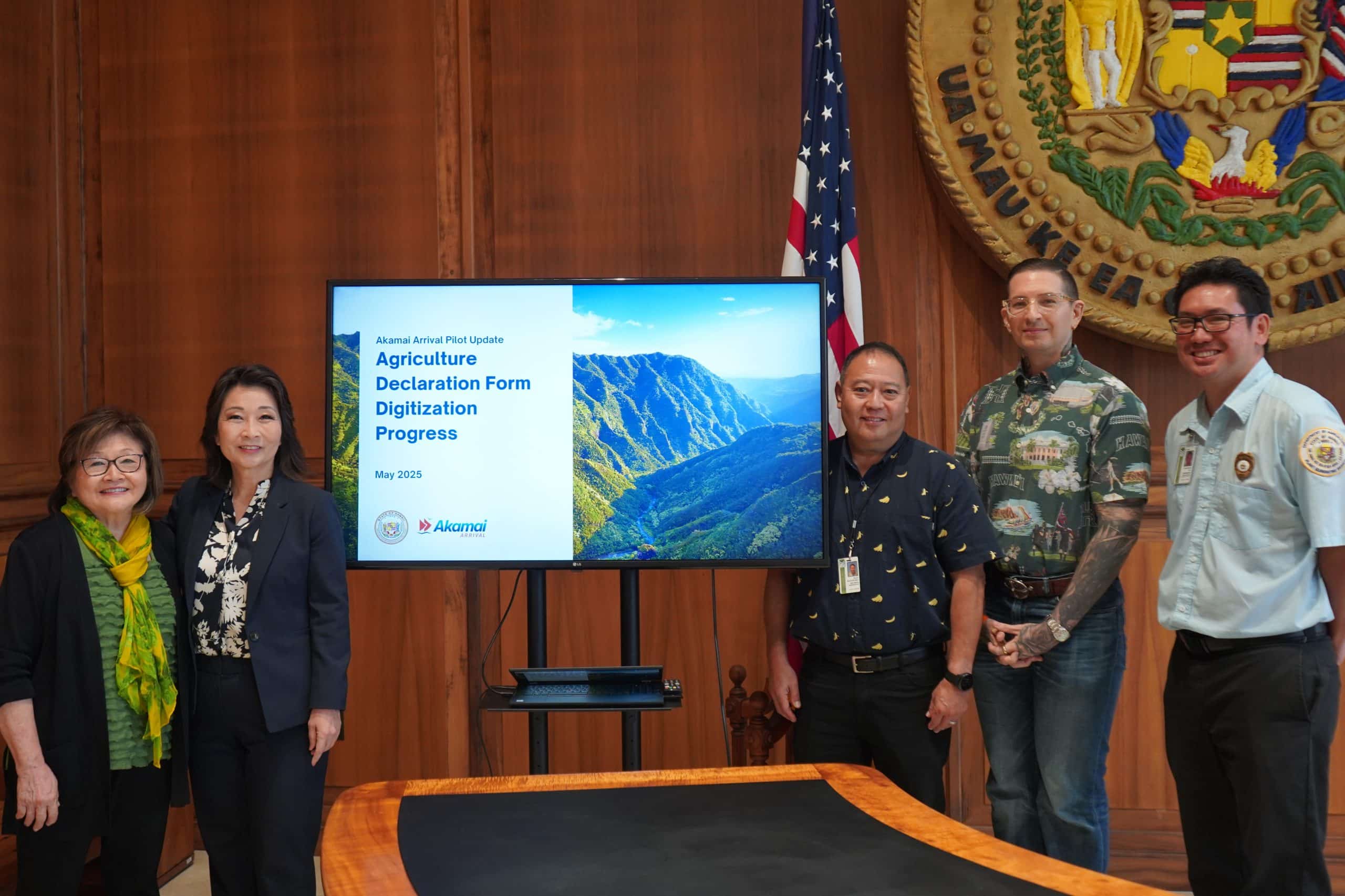Digital Agriculture Form Boosts Compliance Among Travelers
Akamai Arrival Pilot Phase Shows Strong Results as State Moves Toward Expansion

Matsukawa, DOA IT staff member Jason Azus-Richardson, and Plant Quarantine Manager Jonathan Ho.
Link to Press Conference Recording
(Courtesy: Office of the Lt. Gov.)
HONOLULU — Lieutenant Governor Sylvia Luke announced today that the pilot phase of Hawaiʻi’s new Akamai Arrival digital agriculture form has shown strong results, with an average 74% compliance rate for the state’s mandatory Plants and Animals Declaration—compared to 60% under the previous paper-only system.
The Akamai Arrival initiative is a key component of the state’s broader effort to modernize government services, protect local agriculture, and improve the travel experience for both visitors and returning residents. By transitioning from paper to digital, the state has enhanced its ability to collect accurate data in real time and respond more quickly to potential biosecurity threats.
Launched on March 1, the three-month pilot program which ends May 31, was implemented on 30% of incoming flights—more than 100 routes. Six major airlines participated, with Southwest and American Airlines incorporating the digital form on all of their Hawaiʻi-bound flights.
“Akamai Arrival reflects our commitment to modernizing government services in ways that make sense for both travelers and the state,” said Lt. Gov. Luke. “The digital form offers convenience through quick completion, flexible submission options, and multiple language choices—while also providing real-time data that helps us identify and respond to potential biosecurity threats more effectively.”
Based on the pilot’s success, Lt. Gov. Luke announced that the state, in collaboration with airline partners and key stakeholders, will expand the Akamai Arrival program to additional flights throughout the remainder of the year.
The digital form, accessible up to five days before departure, is currently available in six languages, with more in development to increase accessibility for non-English-speaking travelers.
Hawaiʻi’s biosecurity system remains the state’s first line of defense against invasive species that threaten native ecosystems, local food production, and the economy. Moving to a digital platform strengthens this system by allowing faster, more efficient monitoring and response.
“Biosecurity is critical to protecting our local agriculture, environment, and way of life. By moving to a digital platform, we can more effectively identify potential threats and respond quickly to protect Hawaiʻi from invasive species,” said Sharon Hurd, Department of Agriculture chairperson.
The Akamai Arrival platform was developed using internal resources, with no additional cost to taxpayers. It aligns with the state’s goals of sustainability, modernization, and biodiversity protection.
Attachment: